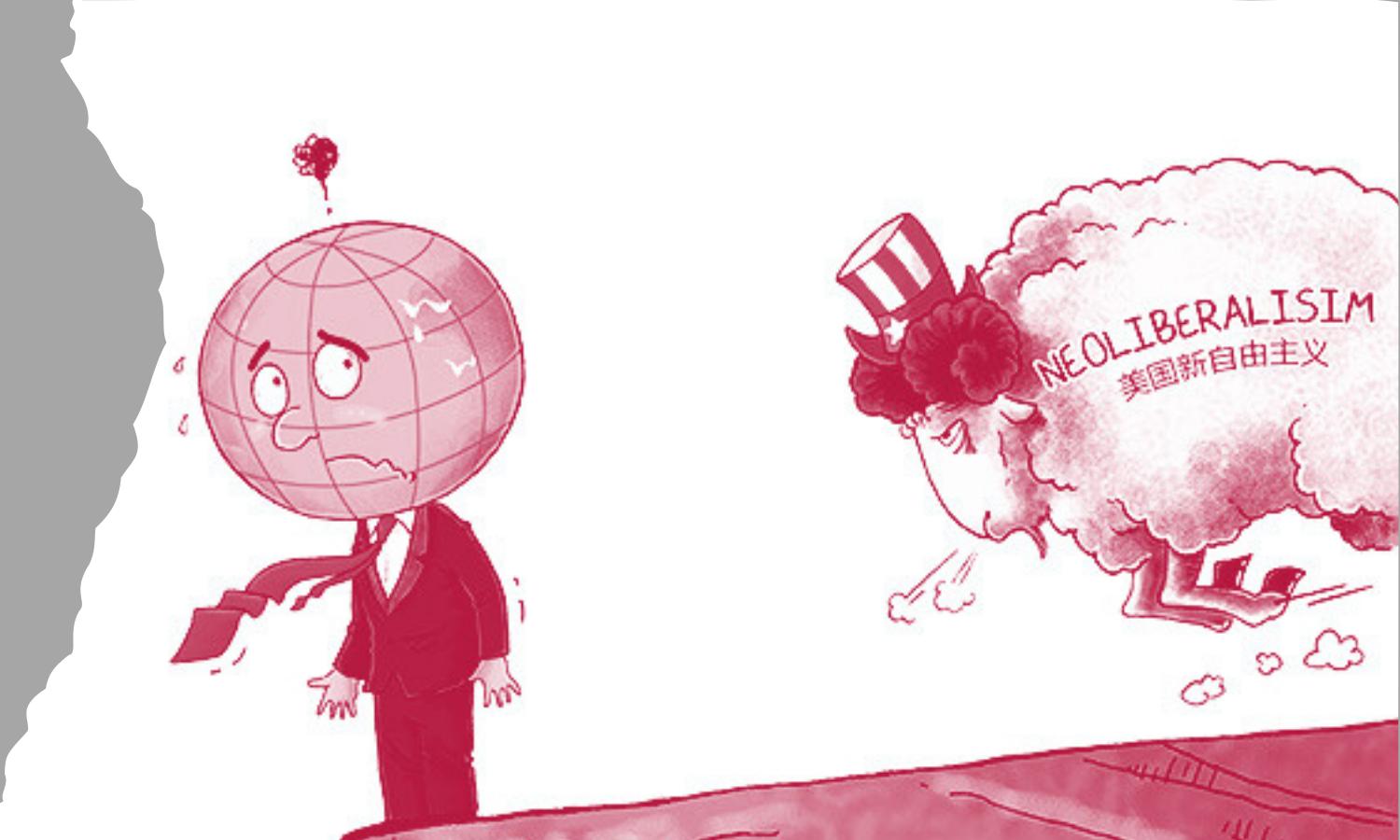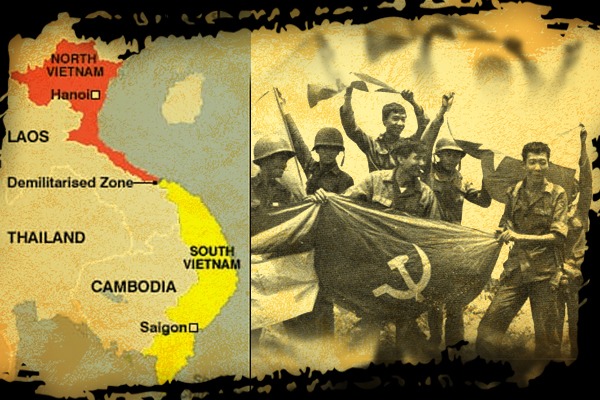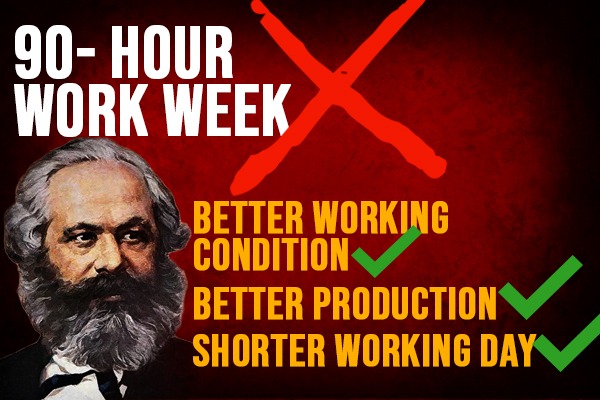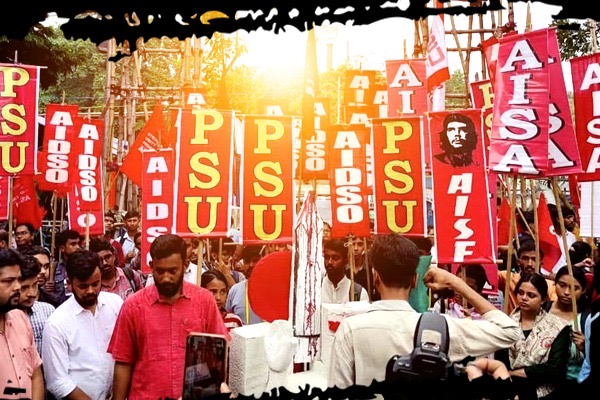Do you hear the sound of the storm?
These days, the skies of the world rumble. Economies are trembling, politics is unsteady, and culture is collapsing. From the alleys of South Asia to the corridors of global trade, the footprints of neoliberal aggression are everywhere. Some call it “development,” others call it “reform.” In reality, it is nothing short of a plundering spree. Riding on the back of the state, the merchant of capital walks forward, leaving behind the hunger of the people and the weary tears of the working class. And the darkest shadow of this aggression falls most brutally on one area—employment.
The Foundations and Philosophy of Neoliberal Economics
Neoliberalism is a political and economic model that emphasizes the values of free-market capitalism, while attempting to shift control over economic matters from the state to private sectors. It includes principles such as privatization, deregulation, globalization, and free trade—commonly (though inaccurately) associated with laissez-faire economics.
Neoliberalism emerged as a counter-model to Keynesian capitalism, which dominated between 1945 and 1980. The Reagan-Thatcher era in the 1980s saw its aggressive implementation, dismantling the welfare state, weakening public services, and empowering corporations to levels never seen before.
Although the term “neoliberalism” was first coined in 1938 at a conference in Paris attended by economists like Walter Lippmann, Friedrich Hayek, and Ludwig von Mises, it was post-WWII—with the founding of the Mont Pelerin Society (1947)—that the doctrine found ideological consolidation. The society warned of the “dangers to civilization” posed by rising state power, socialist policies, and post-war welfare economics.
In 1944, while Eleanor Roosevelt praised Joseph Stalin and Albert Einstein publicly endorsed socialism, Friedrich Hayek published The Road to Serfdom—an impassioned warning against state control of production and the slow erosion of personal freedom and the rule of law.
By the early 1980s, U.S. President Ronald Reagan and U.K. Prime Minister Margaret Thatcher implemented several neoliberal reforms influenced directly by the Mont Pelerin Society. In Reagan’s 1980 campaign team, 22 out of 76 economic advisers were MPS members, including Milton Friedman, a key figure in shaping U.S. economic policy.
Key Features of Neoliberalism
- Neoliberalism is a model of free-market capitalism that strongly advocates for reduced government spending, deregulation, globalization, free trade, and privatization.
- Since the 1980s, neoliberalism has been closely associated with the “flawless” economic policies of U.S. President Ronald Reagan and U.K. Prime Minister Margaret Thatcher, who championed its principles as a cure for economic stagnation and inflation.
- However, neoliberalism has been widely criticized for limiting social services, empowering corporations disproportionately, and exacerbating economic inequality.
Fundamental Concept
Neoliberalism as a Weapon Against Socialism and Class Struggle
At its core, neoliberalism is not just an economic model—it is an ideological weapon forged in the fires of class war. Emerging in the aftermath of World War II, and solidified during the global capitalist crisis of the 1970s, neoliberalism was created and propagated by capitalist elites with a singular historical purpose: to destroy the rising tide of socialism and halt the momentum of global class struggle.
The rise of the welfare state, the strength of trade unions, anti-colonial revolutions, and the socialist bloc posed a severe threat to global capital. The working class had begun to win significant victories—state-funded healthcare, labor rights, free education, nationalized industries, land reforms, and international solidarity. These gains were seen by the ruling elite as intolerable deviations from the natural order of profit and private ownership.
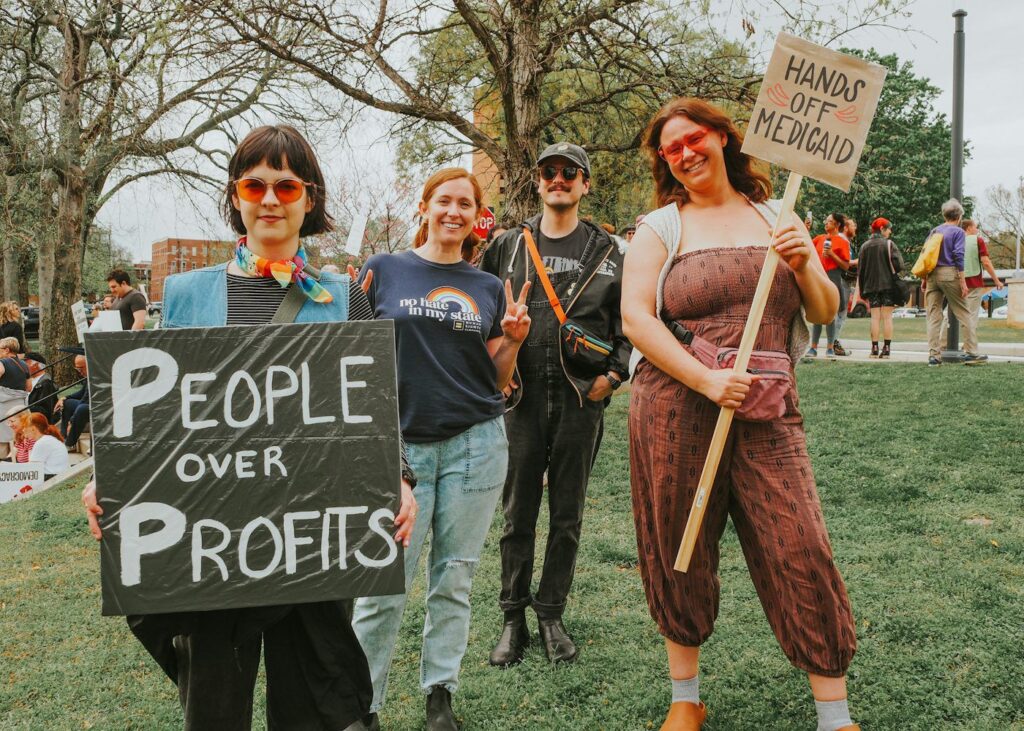
Thus, neoliberalism was born not out of economic wisdom but out of political necessity—to dismantle the gains of the working class, destroy public ownership, and restore unchallenged dominance of capital over labor.
Neoliberalism emphasizes two main mechanisms to achieve this:
Deregulation: The systematic removal of government oversight over industries, allowing corporations to operate freely—often at the expense of labor rights, environmental standards, and public interest. In the United States, examples include the deregulation of airlines, telecommunications, banking, and trucking industries, leading to monopolization and exploitation.
Privatization: The sale or transfer of public assets and services to private hands. This includes not only water, electricity, transport, and healthcare—but also prisons, education, and even warfare (through private military contractors). The privatization of prisons in the U.S., for instance, has turned incarceration into a for-profit business model, where profit grows with human suffering.
These policies are not ideologically neutral—they are designed to shift power from public hands to private capital, from labor to the corporate class, and from democratic oversight to technocratic control.
While neoliberalism rhetorically champions the “free market,” in practice it depends heavily on state enforcement. In fact, neoliberalism is more interventionist than classical liberalism. It demands that the state act aggressively to dismantle labor protections, suppress social movements, restructure economies in favor of corporations, and often impose these reforms through debt, military force, or global institutions like the IMF and World Bank. Countries that resisted neoliberal reforms—Chile under Allende, Nicaragua under the Sandinistas, or Cuba—faced direct or covert U.S. intervention.
This contradiction—between the ideology of minimal state and the reality of an aggressive, coercive state—reveals neoliberalism’s true face: it is not about freedom, but about control.
Historically, since the days of Aristotle, political thinkers have recognized the push-and-pull between oligarchic (elite) control and popular (democratic or redistributive) demand. In today’s representative democracies, neoliberalism intensifies this contradiction: the wealthy demand deregulation and tax cuts, while the working poor demand healthcare, education, housing, and dignity. The state is caught between these poles—often leaning toward capital, while maintaining the illusion of democracy.
Neoliberalism, then, is not merely an economic shift. It is the modern form of class domination, refined and globalized. It erodes solidarity, suppresses collective resistance, and neutralizes radical politics—especially the dream of socialism, which it sees as the greatest threat.
To understand neoliberalism without understanding its political purpose is to misread history. It is not a neutral policy—it is a counter-revolution.
Contradictions and Critiques of Neoliberalism
In practice, the goals of neoliberalism often rely heavily on the power of the state. Despite claiming to reduce government influence, neoliberalism paradoxically demands strong state intervention to enforce market-oriented reforms across society. In contrast to classical liberalism’s “hands-off” stance, neoliberalism turns the state into an enforcer for the free market.
Political scientists since Aristotle have recognized a reality in representative democracies: capitalists seek a state that protects their wealth, while the poor demand policies that enable fairer distribution. This inherent tension intensifies under neoliberalism.
Since the global financial crisis of 2008–09, neoliberalism has faced sharp criticism from across the political spectrum. Key critiques include:
Market Fundamentalism
Critics argue that free-market principles are inappropriate in essential public services like education and healthcare, which are not driven by profit. Neoliberalism’s market-first approach increases inequality and harms the long-term health of the economy.
Corporate Supremacy
Neoliberal policies have emboldened large corporations with near-monopolistic powers. Economists Jamie Peck and Adam Tickell note that these corporations now influence basic conditions of everyday life, sidelining public agency.
Globalization and the Rise of the Precariat
Lorna Fox and David O’Mahony argue that neoliberal globalization has created a new social class—the precariat—living under constant insecurity, with no predictability or protection. Political scientist Daniel Kinderman estimates this despair-driven existence may cause over 120,000 excess deaths annually in the U.S. alone.
Intensifying Inequality
Neoliberalism has accelerated class-based inequality. In the U.S., the richest 1% controls nearly 40% of total wealth, including over half of all financial investments, while the bottom 80% controls only 7%. The bottom 40% owns less than 1%. Economists David Howell and Mamadou Diallo assert that since the 1980s, neoliberalism has created the largest wealth gap in U.S. history.
Indifference to Human Welfare
Critics contend that neoliberalism prioritizes profit over people. For example, sustainable environmental practices are discouraged due to higher costs, despite the worsening climate crisis. Price-gouging during health emergencies, as seen during COVID-19, reveals a model that rewards profit—even at the cost of human lives.
In May 2020, Mexican President Andrés Manuel López Obrador declared in a six-page letter that the pandemic proved neoliberalism’s failure to protect public welfare or consider environmental damage caused by its relentless growth model. He condemned the lack of international solidarity in securing medical supplies and concluded: “The neoliberal model has reached its limit.”
Neoliberalism as a Cultural Monster
Neoliberalism presents itself as a rational, modern economic system—promising efficiency, growth, and freedom. But behind the glossy facade lies a cultural monster, one that devours not only economies, but the very soul of societies. Born in the ideological battleground of the Cold War, neoliberalism was never merely an economic theory. It was a counter-revolution, designed to suppress socialism, dismantle working-class movements, and neutralize the gains of decades of labor struggles.
After World War II, waves of socialist consciousness and workers’ rights swept across the globe. From Latin America to South Asia, from the factories of Detroit to the communes of Vietnam—class struggle threatened the dominance of capital. The global elite, terrified by the rising tide of socialism, forged a new weapon: neoliberalism. Beginning with the Pinochet dictatorship in Chile—where the “Chicago Boys” experimented with privatization under military rule—and later mainstreamed by Reagan and Thatcher, neoliberalism became the global blueprint of modern capitalism.
Its true purpose was not growth, but control.
Control over labor.
Control over land.
Control over thought.
Neoliberalism proclaims the market as supreme, placing it above state, society, and people. In this system, everything becomes a commodity—education, healthcare, water, forests, even dreams. It dismantles the welfare state, crushes trade unions, fragments collective movements, and promotes a culture of competition, individualism, and alienation.
Despite claims of global poverty reduction, the fruits of growth are unequally distributed. Under intense market competition, giant corporations become oligarchs while small and medium enterprises wither. Workers are pushed into precarious jobs, the informal economy explodes, and basic services become inaccessible. Living standards decline, not rise, especially in the Global South. Human rights are sacrificed at the altar of profit. The cultural logic of neoliberalism mocks solidarity, romanticizes the rich, and blames the poor for their own poverty.
A Parable of Power and Collapse
Imagine a wealthy merchant who monopolizes a marketplace. He buys off regulators, suppresses competitors, and amasses wealth by exploiting laborers—offering them no fair wages, no rights, no future. His opulent home towers over the slums of those who serve him. For a time, his empire flourishes. But beneath the surface, unrest brews. The workers whisper in silence. The hungry grow bold. And one day, their resistance shatters the illusion. The merchant’s reign collapses—not from external attack, but from the rot within his own kingdom.
This parable is not fiction. It is the story of neoliberalism itself—an exploitative structure built on suppression and unsustainable greed. It is doomed by its own contradictions.
Neoliberalism pushes society toward a dead end. It dehumanizes labor, criminalizes resistance, and replaces citizenship with consumerism. It is anti-democratic at its core, as it transfers power from elected governments to unelected financial institutions, credit agencies, and transnational corporations.
To defeat this monster, we must reclaim the political imagination that neoliberalism seeks to erase. We must remember that another world is possible—one where human dignity is not determined by market value. This requires not just resistance, but a revolution of values—of solidarity over competition, of cooperation over greed, of socialism over exploitation.
History teaches us: wherever there is exploitation, resistance is born. The monster may be powerful, but the people—once awakened—are stronger.
The Employment Crisis: Solution or Nightmare?
According to the World Bank, more than 70 million people in South Asia fell below the poverty line in the post-COVID period. In Bangladesh alone, 18 million people lost secure jobs or were forced into precarious employment by 2023.
Neoliberal economics doesn’t merely impact policy—it reshapes culture. Workers are now framed as “entrepreneurs.” If they fail, it’s their fault. The state and corporations are no longer accountable.
This ideology breeds several distortions:
- Media glorifies self-employment: Be your own boss! But where is the capital?
- Job markets are increasingly based on English-language digital skills, excluding working-class students.
- Blue-collar workers—delivery staff, hotel workers, freelancers—are culturally degraded and devalued.
Globally, corporations have shifted toward short-term, low-wage, long-hour contracts in pursuit of higher profits. Workers, with no job security, now live under constant fear. The gig economy is a central driver of this trend, promoting temporary, insecure employment.
Governments, rather than creating long-term public employment, align with international donors and investors who don’t understand local realities. They invest in GDP-friendly mega-projects while ignoring actual livelihoods.
Public sector jobs—once the dream of middle-class youth—are shrinking:
- Recruitment freezes in education, healthcare, agriculture.
- Budget deficits cited to avoid hiring, even while billions are spent on infrastructure.
- Graduates, desperate for work, face despair, addiction, and suicide.
Governments are retreating from responsibility. There are no longer mass employment programs or state-led industries. Instead, the state obsesses over “investor-friendly rankings” and “ease of doing business.” But no one asks—who benefits from this business? How many livelihoods are created?
Automation replaces workers without training alternatives. The government says “become entrepreneurs” while offering no funding, no training, no market access.
International Resistance and the Search for Alternatives
Across the world, various nations have demonstrated that resistance against neoliberalism is not only possible but essential. From Bolivia, Venezuela, and Chile in Latin America, to Greece in Europe, and South Africa’s labor strikes, mass movements have challenged neoliberal policies and forced governments to reconsider.
In South Asia, the 2020–21 massive mobilization of over 250 million farmers and workers in India was historic. These movements laid bare the limits of capitalism and inspired a new generation with the belief that “struggle is the driving force of history.”
In Bangladesh, too, labor movements by garment workers, youth and student organizations demanding jobs, and the growth of independent trade unions are gaining momentum. Young people are asking: Why does the state guarantee corporate profits but not jobs for its people? Alternative economic models—such as cooperative ownership, rural enterprise, and decentralized economies—are being discussed widely.
In Pakistan and Sri Lanka, economic and political movements have surged from grassroots levels. Pakistan’s student protests and Sri Lanka’s “Go Home Gota” movement, where citizens occupied the presidential palace, declared: The state belongs to the people, not the IMF.
Chittagong Port, Dr. Yunus, and the Empire of Development
In 2006, Dr. Muhammad Yunus won the Nobel Prize for poverty alleviation, sparking nationwide celebration among media and elites. However, at the same time, he proposed privatizing Chittagong Port, bringing in “foreign skilled management.”
This proposal symbolized a major shift—the corporatization of a vital economic and strategic asset. Control of the port means control of Bangladesh’s trade flow, strategic security, and regional influence. Handing it over to foreign management is textbook imperialism—a soft version of colonialism disguised as development.
Dr. Yunus, once celebrated as a pioneer of microcredit, emerged as an international policy actor promoting a neoliberal agenda. His Nobel Prize was not merely an honor but a political message endorsing the neoliberal path for Bangladesh.
The “shock therapy” ideology—originating from Milton Friedman’s philosophy—exploits weak states and moral confusion to push privatization. The port’s privatization risks workers’ rights, safety, and local control.
This is a silent war against the working class, fought not with guns but with economic strategy and policy complexity. Dr. Yunus stands as a quiet planner, weaving Bangladesh into the global neoliberal framework under the guise of “people-centered development.”
Capital as God — Are People Mere Sacrifices?
Neoliberalism functions as a new form of colonialism, where capital flows like ships—investing, grabbing land, eroding culture. Regional inequality, cultural homogenization, and identity crises are direct consequences.
Lenin’s words resonate: “Without a revolutionary theory, there can be no revolutionary movement.” Our battle today is not only economic but also cultural and political. We need bold imagination, courageous politics, and workers’ unity.
Cultural Conflict: The Fragmented Identity
Neoliberal aggression invades culture, changing languages and art forms, flooding with advertisements and reality shows. Media becomes a mouthpiece for corporations; artists become brand ambassadors; poets turn tabloid fodder.
In India, Hindi dominates, marginalizing regional identities. Bangladesh faces an English-language flood in the name of “IT exports.” Pakistan grapples with Islamism versus market-funded glamour; Sri Lanka struggles with Sinhala nationalism and multinational capitalist culture.
Neoliberalism disregards cultural diversity and humanity’s core values. When everything is commodified, respect, empathy, and human connection shrink.
Culture is not mere entertainment—it embodies society’s values and social structure. A new society must prioritize equality, freedom, and justice, cultivating a culture rooted in empathy and solidarity.
Social organizations and cultural movements—through art, literature, theatre, music—must awaken political consciousness and unite diverse groups. Education should foster equality, justice, and human rights from childhood, nurturing creative thinking and free spirit.
Rebuilding Politics: Empowering the People
Neoliberalism has caused political paralysis. Instead of serving people’s interests, politics now answers to corporate powers. Political parties lose legitimacy as they serve ruling elites.
To create a new political structure, we must restore people’s trust in leftist politics—those who fight for social justice and protect fundamental rights.
Local public welfare projects—healthcare, education, infrastructure—should be run with government accountability, free from corporate exploitation.

Workers’ Resistance: Fire All Around
India’s farmer protests, global labor strikes, Bangladesh’s garment workers’ courageous fights—these demonstrate the resilience of the working class.
In Pakistan, student and transport strikes; in Sri Lanka, public uprisings seizing presidential palaces—these grassroots movements show that people’s unity can corner ruling classes.
The Path to Socialism: Reclaiming the Future
If neoliberalism is the monster that feeds on alienation, inequality, and corporate greed, socialism is the antidote—rooted in justice, equality, and human dignity. Where neoliberalism prioritizes capital, socialism prioritizes people. Where neoliberalism fragments society into individual competitors, socialism rebuilds community and collective strength.
But socialism is not a ready-made system waiting to be installed like software. It is a path—a continuous struggle, evolving through historical experience, guided by the principles of equality, worker ownership, and democratic control of resources.
The capitalist ruling class has long understood this threat. That is why neoliberalism was designed precisely to dismantle socialism, delegitimize public ownership, and erase class consciousness. It wages not just an economic war, but a cultural one. It teaches the poor to blame themselves, not the system. It teaches the young to aspire to wealth, not solidarity. It privatizes not only institutions but also the very idea of freedom.
To counter this, we must return to the core truth Marx taught us: freedom does not exist without material security. A person cannot be free if they are hungry. A worker cannot be free if they are forced to sell their labor at starvation wages. A society cannot be free if it is run by banks and billionaires.
Socialism begins with this understanding—and builds forward.
Democratic planning over anarchic markets: Production should serve human needs, not corporate profits. Healthcare, education, housing—these are rights, not commodities.
Public ownership of key industries: No essential service—energy, transport, agriculture—should be held hostage by profit motives. Strategic sectors must belong to the people.
Empowerment of the working class: Through trade unions, cooperatives, and participatory councils, socialism puts power where it belongs—in the hands of those who labor.
Decolonizing the global South: Socialism must be anti-imperialist. It must fight the domination of Global North finance and reclaim national sovereignty for exploited nations.
Ecological harmony: Capitalism treats nature as an infinite resource. Socialism recognizes ecological balance as essential to human survival.
But above all, socialism revives a radical imagination—it reminds us that the world as it is, is not the world as it must be. It teaches us that solidarity is more powerful than competition, that justice is more sacred than GDP.
In our cities, our villages, our factories and farms—the seeds of this alternative already exist. In mutual aid networks, in landless movements, in striking workers, in indigenous resistance—we see socialism not as a dream, but as a living possibility.
Yet this path will not be handed to us. It must be built—brick by brick, banner by banner, struggle by struggle.
The Struggle Ahead – For a Just World, For Human Dignity
Neoliberalism is not merely an economic model—it is market fundamentalism, where profit reigns supreme and the state becomes a mere broker for corporate interests. It commodifies life, erases social responsibility, and chains the working class in invisible shackles. It promises freedom, but delivers exploitation. It speaks of growth, yet silences human dreams and dignity.
Socialism is not a utopia—it is the path to reclaiming our stolen humanity. And communism, far from being a forgotten ideal, remains the true horizon of freedom, justice, and collective ownership. In a world where everything is turned into a commodity—even education, healthcare, and dignity—the only antidote is people’s power, organized through class consciousness and struggle.
To fight neoliberalism, we must empower
Class struggle: not as abstract theory, but as lived resistance—of farmers, workers, informal laborers, migrants, women, and students—who form the backbone of our economy but are crushed under its weight.
Political education and cultural awakening: We must rekindle the memory of resistance—of Tebhaga, of Telengana, of anti-colonial struggles—within today’s exploited masses.
Democratic organization of labor: Strong trade unions, cooperatives, and people’s councils must rise as real alternatives to the corporate state.
Alternative media and storytelling: We must challenge the neoliberal narrative—its false heroes and fake promises—with stories from the ground, songs of the street, voices of the voiceless.
International solidarity: From Palestine to the mines of Congo, from Indian farmers to Chilean workers—our liberation is bound together. The empire is global; so must be our resistance.
We stand at a crossroads. Shall the wheel of the economy turn only for corporate greed? Or shall we seize the wheel and redirect it towards people’s needs?
If we dream of a humane society, the road is clear—organized resistance, conscious alternatives, and a just economy where human life is sacred, not sacrificed.
This land, this sweat, this language—we will not surrender them to capital. We will write a new history with calloused hands and courageous hearts. Where oppression exists, resistance is born. And from that resistance, a new dawn shall rise.
Let us walk the path—not of despair—but of struggle. Not of silence—but of speech. Not of fear—but of freedom.
Socialism is not a dream. It is a necessity. If we desire a humane society, our path is clear—organized resistance, conscious alternatives, and a just economy. This land, this sweat, this language—we will write the new history.

